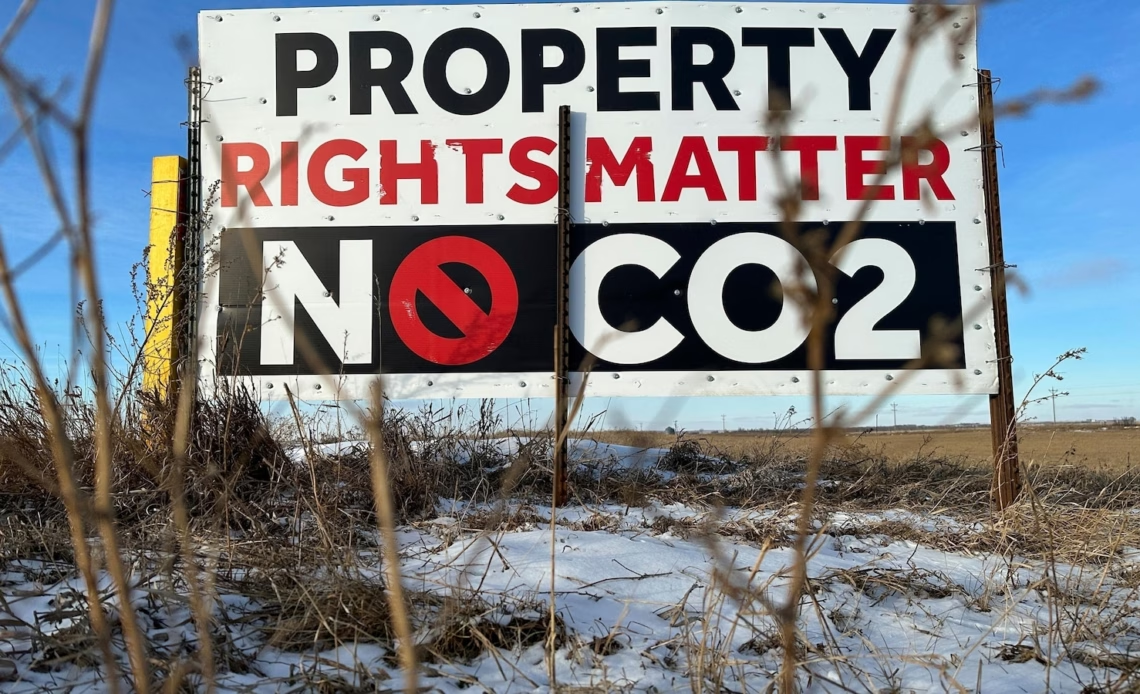SIOUX FALLS, S.D. — A new law in South Dakota prohibiting the use of eminent domain to acquire land for carbon capture pipelines raises questions about the viability of a proposed 2,500 mile (4,023-kilometer) project snaking through five Midwest states.
Summit Carbon Solutions, the company behind the estimated $8.9 billion pipeline, vowed to keep pursuing the project despite South Dakota Gov. Larry Rhoden’s announcement Thursday that he had signed a bill into law that will make routing the line much more difficult. The law bans Summit from forcing South Dakota landowners to allow the pipeline through their property.
Plans call for the pipeline to carry greenhouse gas emissions from more than 50 ethanol plants in Iowa, Minnesota, Nebraska, North Dakota and South Dakota to a spot in North Dakota, where it would be permanently stored underground.
It’s unclear whether Summit will pursue legal action but the company said in a statement that “all options are on the table” and the project “moves forward” in other states. The company promised it would have more news soon.
Large pipeline projects typically rely on eminent domain, with companies arguing that even if most landowners agree to grant access to their property, a project can be scuttled if only a few refuse.
Summit says the company, which has secured over 2,700 easements across the region, has approval for routes in Iowa and North Dakota and a leg in Minnesota.
The current proposed route would cut through nearly 700 miles (1,126.5 kilometers) of South Dakota before entering North Dakota, so rerouting to the east through Minnesota would be a big challenge.
A Summit spokesperson did not respond to questions Friday about whether the company would consider a new route.
The sponsor of the South Dakota bill, Republican Rep. Karla Lems, said Summit could either reroute its pipeline through Minnesota into North Dakota or “negotiate with landowners in South Dakota” and go around opponents.
Gov. Rhoden said the South Dakota law wasn’t intended to kill the project and suggested Summit see it as “an opportunity to reset.”
Minnesota is a relatively small part of Summit’s overall project. The only segment approved in the state is a 28-mile (45-kilometer) leg from an ethanol plant near Fergus Falls to the North Dakota border. Summit’s project also includes two legs in southern Minnesota that would go into Iowa.
A Minnesota Public Utilities Commission spokesperson did not respond to phone or email messages.
Click Here to Read the Full Original Article at ABC News: US…

